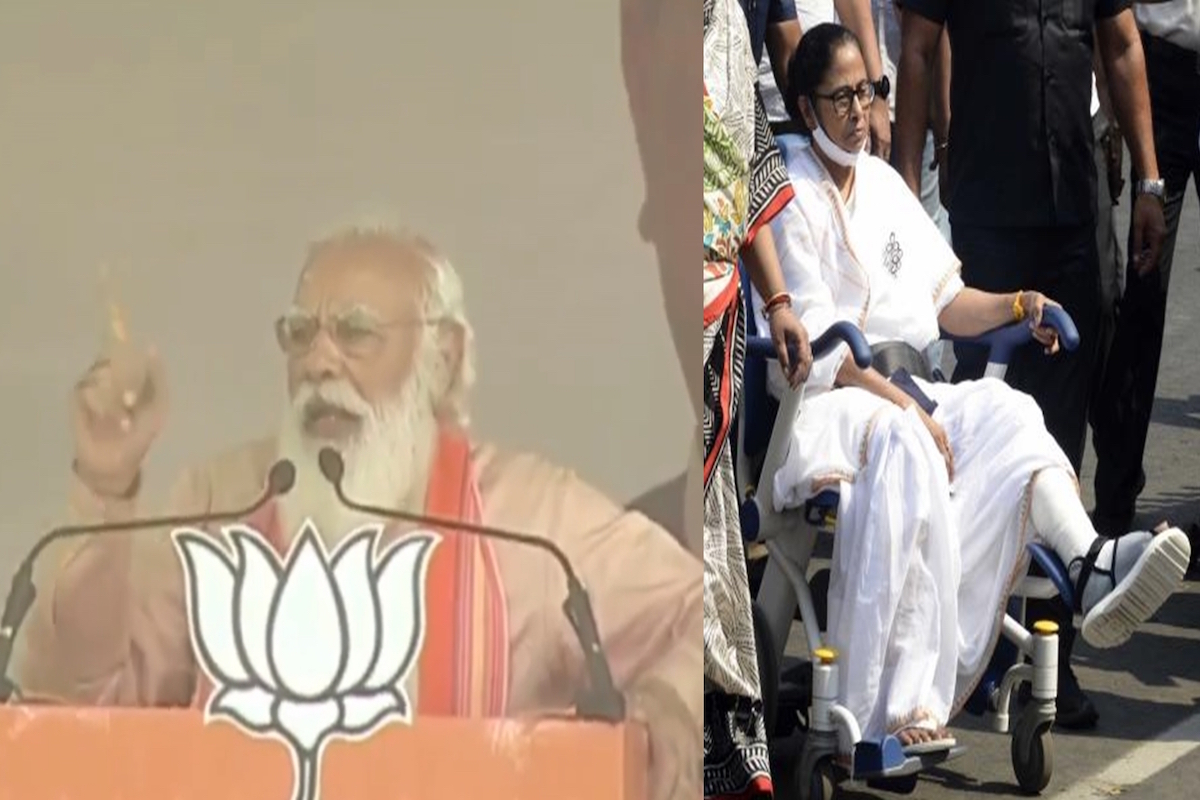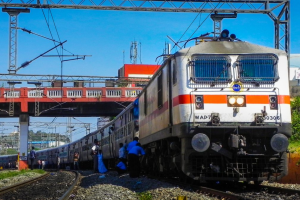The Assembly Election of West Bengal will go down in the annals of electoral history of the country as an event marked by tectonic shifts in the political landscape of the country. West Bengal stopped the juggernaut of the mighty electoral machinery of Bharatiya Janata Party which used its full vigour to capture power in the state. Political pundits continue to debate whether the outcome of the election is a severe blow to the alleged divisive politics and the technique of communal polarization followed by the challenger or a victory of the welfare measures, differently construed as dole politics, pursued by the incumbent.
But the election held amidst an unprecedented health emergency will also be viewed by future analysts as one of missed opportunities as grossly inappropriate management of the electoral process by the Election Commission has already faced severe opprobrium from different corners. The Election Commission has suffered from a crisis of credibility. Genesis of the problem, analysts believe, lies in the flawed system of appointment of Election Commissioners, who are appointed unilaterally by the government of the day.
Advertisement
The Law Commission’s recommendation for formation of a collegium, consisting of the Prime Minister, the Leader of the Opposition and the Chief Justice of India for conducting the process of appointment of Election Commissioners has fallen on deaf ears as successive governments, not willing to let go of their power of influencing the functions of the Commission, have avoided the issue of depoliticising the appointment of the Commissioners through a process of broad-based consultation.
Political observers have commented in recent times that on all those occasions when the present dispensation at the Centre wanted the Election Commissioners to bend, they have actually crawled. The unusual and unreasonable schedule of election charted by the Commission for West Bengal, conducted in eight phases and spread over five weeks, in the midst of a raging pandemic, despite West Bengal being a smaller state than Tamil Nadu, which was also due to elect a new assembly but where the EC had mandated that all voters would vote on a single day, predictably generated doubts about the impartiality and professional integrity of the Commission.
It was perceived as a step to help star campaigners of the BJP to make repeated forays into the electoral battleground of Bengal. While granting that elections in West Bengal have always been bitterly contested, and often violent, the decision to hold elections in so many phases so as to facilitate the movement of central forces from one polling area to another, as claimed by EC, seemed spurious and unacceptable to most observers and political parties in the fray.
After the Calcutta High Court sought an action taken report on measures the EC was adopting in the context of rapidly rising numbers of Covid infections in the state in the midst of the election process, the Commission ordered the cancellation of all mega rallies and roadshows for the last two phases of election, while at the same time rejecting the desperate appeal of doctors, epidemiologists and political parties to club the last phases, a measure viewed as too little and too late. EC’s intransigence, finding endorsement again only from BJP came under scathing criticism from different quarters.
The Madras High Court severely castigated the EC for the surge in Covid-19 cases during the second wave of the pandemic, holding it “singularly” responsible for the spread of the viral disease as it failed to rein in large gatherings. The court called it the “the most irresponsible institution” and even said its officials may be booked under murder charges. It is even more distressing that instead of doing some serious introspection about where it went wrong, the EC approached the Supreme Court for a gag order on media reports about its indictment by the Court.
Fortunately, the Supreme Court declined the plea of the Commission, while observing that live reporting of court proceedings by the media is an extension of the freedom of speech and expression that the media possesses and is a cause of celebration rather than apprehension. While it is true that the EC is not empowered to disqualify candidates who commit electoral malpractices, nor does it have the power to deregister any political party, appropriate changes in the People’s Representation Act, 1951 are much needed for effectively addressing innumerable flaws in the electoral process.
One has to admit that in the ultimate analysis, the quality of leadership defines the stature of an institution more than its procedural framework. The stellar performance of the country’s first Election Commissioner Sukumar Sen, who had the guts to ask Prime Minister Nehru to be patient in matters of holding election so that the Commission could mobilise officials to prepare the country’s first electoral roll with precision, elevated the stature of the country as Asia’s largest functional democracy.
The country’s tenth Election Commissioner T N Seshan took many momentous decisions to make EC function as a truly autonomous body, not taking orders from the Central government. Some exceptional measures could be initiated during the elections held in the midst of an unprecedented public health calamity this year. For more than a year, teachers across India are struggling to make maximum use of digital technology so as to ensure that the process of imparting education does not come to a grinding halt, something so crucial for the future of any nation.
There has been considerable increase in internet penetration, even in the rural hinterland, and proliferation of the use of mobile phones. Political parties could be persuaded to campaign virtually, and shun roadshows and rallies, at least in urban and semi-urban areas where such mediums are much in use and where intensity of Covid infections is also higher, mainly due to density of population. A properly developed portal could give voters the option of online voting, again in metros. This would have greatly reduced the need for polling personnel.
The citizens watched with horror as thousands of polling and police personnel gathered at centres without social distancing norms being followed. While talking to the media, many polling personnel expressed apprehension about getting infected. The way even college and University teachers are deployed in election duties is almost similar to the practice of conscription, something not acceptable in a democracy and hence was shunned by the architect of our constitution.
Educated youth of a particular locality can be trained to perform election duties in that locality, sparing teachers of this ordeal, many of whom are middle-aged family persons, not oriented to such work. Quite a few teachers have succumbed to Covid infections in Bengal after returning from poll duties, as gathered from newspaper reports, and since years of education and pedagogic excellence are required to enter the academic fraternity, death of teachers amounts to significant loss of valuable human resources.
Unfortunately, those at the helm of affairs in EC this time lacked both the vision or the will power to chart a new course. Scientists have warned us that even after the pandemic subsides, the virus is not going away any time soon and large gatherings are to be avoided for a long time to come. One hopes that in future, in its zeal to make elections ‘free and fair’, the EC does not act in total disregard of the health-related concerns of the ordinary populace, and a democratic exercise is not conducted in an anti-people, autocratic manner. The vitality of Indian democracy considerably hinges on the restoration of the credibility of this important institution.
(The writer is Associate Professor, Department of Political Science, Women’s Christian College, Kolkata)










